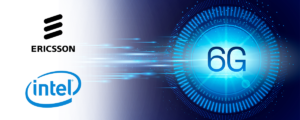
The UAE has allocated the 600 MHz and 6 GHz frequency bands for International Mobile Telecommunications (IMT) systems, aiming to enhance its telecommunications sector. Announced by the Telecommunications and Digital Government Regulatory Authority (TDRA), this initiative positions the UAE among the first countries globally to adopt these frequencies, aligning with the resolutions of the World Radiocommunication Conference 2023 (WRC-23) held in Dubai.
Advancing Smart Cities and 6G Readiness
The new frequency bands, expected to be operational by 2025-2026, will bolster technologies critical for Smart Cities, including the Internet of Things (IoT), Artificial Intelligence (AI), and Fourth Industrial Revolution (4IR) applications. These applications demand high-frequency bands and ultra-fast data transfer capabilities. The allocation also lays the groundwork for 6G networks, set to debut by 2030, promising terabit-level speeds, ultra-low latency, and enhanced connectivity.
“In parallel, the UAE is progressing with advanced 5G technologies within the 6 GHz band, achieving data transfer speeds of up to 10 Gbps,” according to the TDRA.
Commitment to Innovation and Leadership
Marking the occasion, TDRA’s Board Chairman praised the adoption of these frequency bands as a milestone coinciding with the UAE’s Union Day 53 celebrations. He highlighted the move as a pillar of the “We the UAE 2031” vision, aiming to position the nation as a global leader in technology and innovation.
TDRA’s Director-General called this development a “paradigm shift,” emphasizing the transformative potential of 6G in sectors like real-time holography, augmented reality (AR), virtual reality (VR), and smart city applications.
“The adoption of these bands ensures that the UAE will remain at the forefront of innovation, providing the spectrum infrastructure needed for future cities and metropolises,” the Director-General added.
Also Read:
6G: The Next Frontier in Connectivity
The Future of 6G Technologies
6G is poised to redefine technology by offering terabit-level speeds, latency below one millisecond, and advanced AI-driven networking. It will also integrate communication and sensing technologies, enabling groundbreaking applications such as real-time holographic connectivity, immersive VR/AR experiences, and large-scale IoT integration.
These advancements align with the UAE’s vision of building a knowledge-based economy centered on innovation and technology, reinforcing its global leadership in digital transformation.



